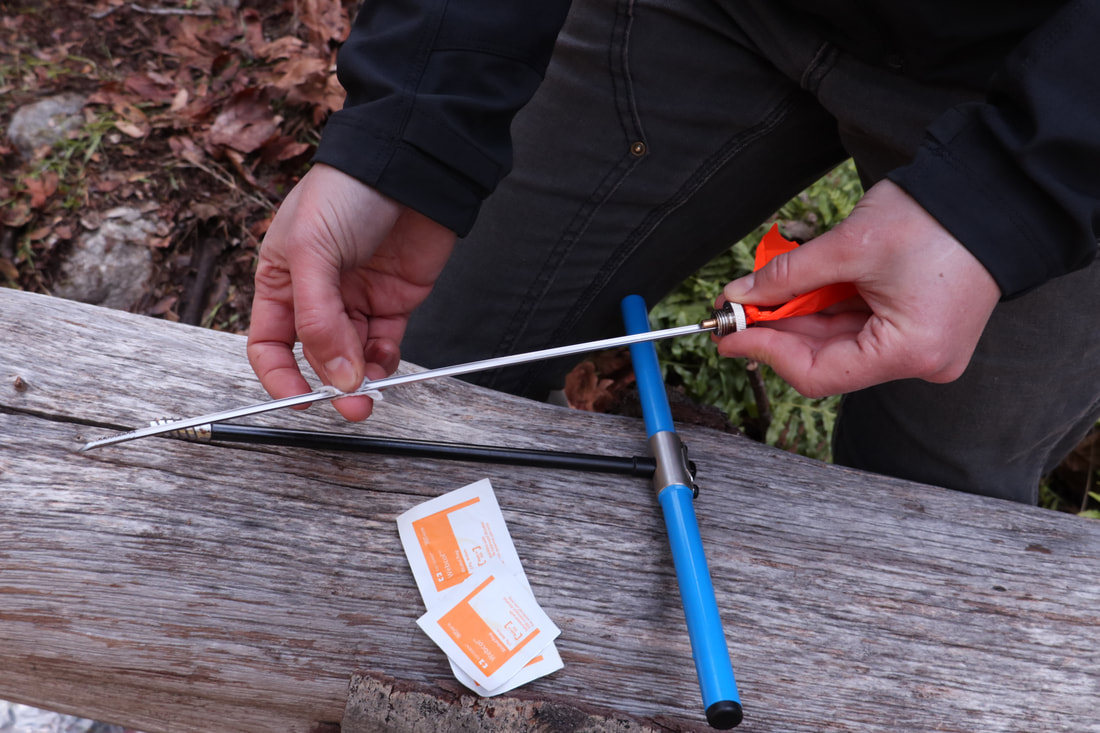JOIN OUR TIMBER TEAM
NOW ACCEPTING APPLICATIONS!
HELP PROTECT FORESTS
Do you care about healthy forests? You can apply to join this project if you are a hiker, a birder, a biker, a forager, or a tree lover to explore the hardwood forests of the eastern and central United States in search of black walnut trees! Data collection for this phase of the project ends on January 31, 2022. To meet that deadline, apply by January 11.
One of the most valuable hardwood species in the United States, black walnut trees are threatened by timber poaching across the 30+ states in their range. Timber prices are skyrocketing and a black walnut tree can be worth $50,000, making them especially attractive to thieves. This impressive species is a critical part of the canopy as well as a valuable food source for fox squirrels and other creatures. It’s well worth protecting.
The species has been cloned and planted across the world, so your backcountry skills are especially needed to take samples from wild trees on public lands. Those samples will become the basis of chemical and DNA databases that law enforcement can use to prosecute timber thieves.
Project Details

Timeframe and Commitment
Sample collection for eastern black walnut will kick off in July 2021.
Data collection will take place on public lands (forests, refuges, reserves) throughout the Eastern black walnut range in the US. These trees grow from western Connecticut and Massachusetts to the coast of North Carolina, from Georgia and west until eastern Texas, north through Oklahoma, Kansas and Nebraska, and across the southern regions of Minnesota, Wisconsin, Michigan, and New York. See the species range map below.
The tree grows near streams and rivers in well-drained soils. You’ll hike or walk, sometimes navigating off-trail, to find individual trees. We expect you to collect samples from at least 10 trees that are at least 100 meters apart.
The project runs through January 31, 2022. The latest we will accept new volunteers is January 11.
Training and Equipment
All volunteers need to complete online training modules and a comprehensive quiz prior to getting out in the field. We offer a variety web events, discussions, and readings to supplement the training.
The training will include information on how to ID black walnut using a tool called a dichotomous key, which we will also provide. Learning the proper identification of these trees is critical, especially during the dormant season.
Data collection will include taking samples of leaves, twigs, and in some cases, tree cores. You’ll also record data using a smartphone app.
You’ll have access to register for the public land parcels where you plan to collect samples as part of the online training process.
We will ship your equipment at least one week before your anticipated start date. We ask that you ship your equipment and samples back to us as soon as you finish sampling.

APPLY TO JOIN THE PROJECT
We are seeking adventurous individuals who will follow detailed protocols, communicate regularly with the Adventure Scientists team, and follow through on their commitments in a timely matter. Data collection for this phase of the project ends on January 31, 2022. To meet that deadline, we will send gear to volunteers no later than January 12, so please plan accordingly.
General qualifications:
- 18 years of age or older (minors are welcome to join sampling outings but asked not to lead data collection)
- Ability to use a smartphone to collect data
- Experience and ability to safely travel in the outdoors with at least one partner
- Previous field data collection experience is preferred but not required
As a volunteer for the Timber Tracking Project: Eastern Black Walnut, we’ll supply you with the tools and training necessary to collect samples from the forest. You are required to follow all environmental, safety, and permitting protocols.
Check out the map below of the species range, with highlighted public lands were data collection will take place (Click on the list-like icon in the upper left corner to hide or view the map legend).
We are still accepting applications in Oklahoma, South Dakota, Arkansas, and Texas. We’ve reached the maximum number of volunteers needed in other states.
